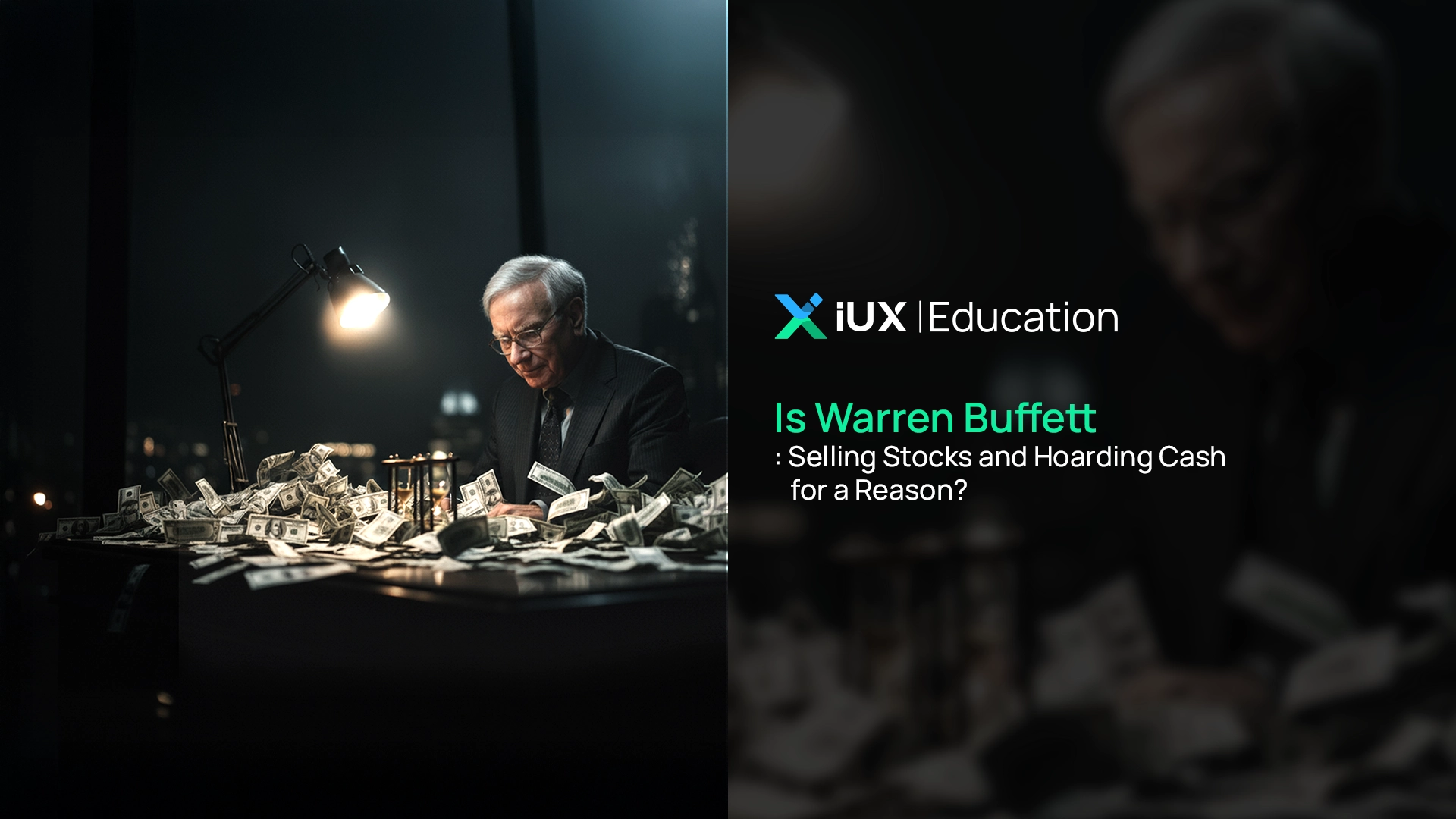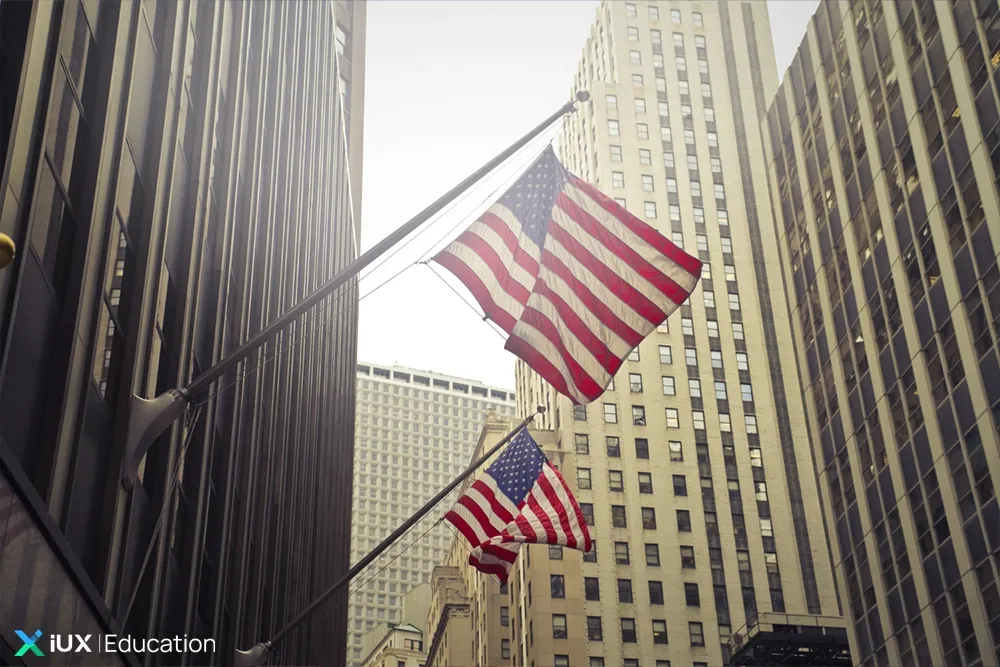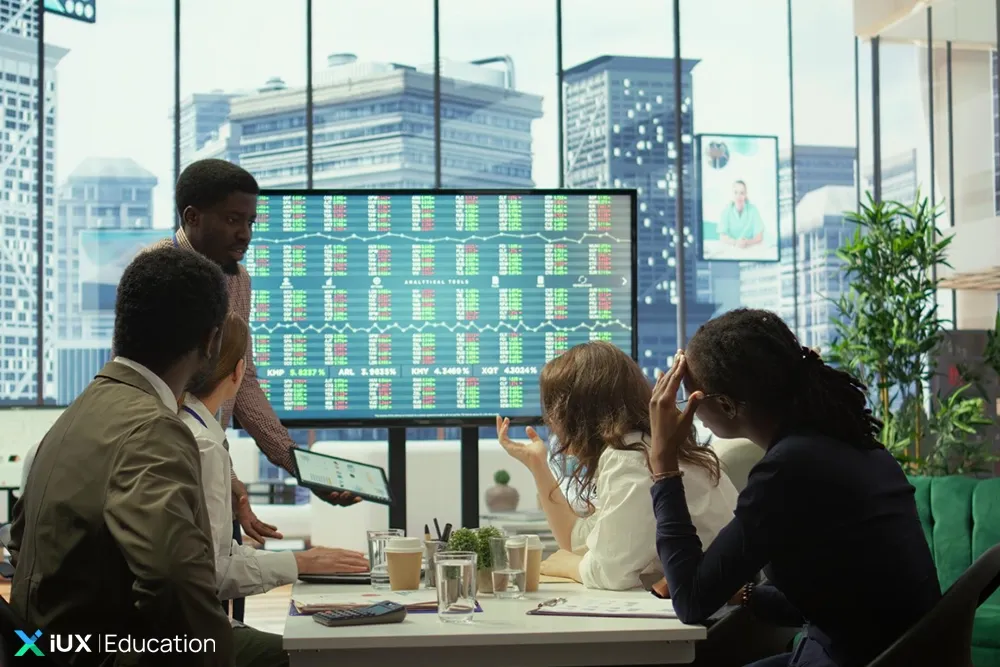CFDs are complex instruments and come with a high risk of losing money rapidly due to leverage. 76% of retail investor accounts lose money when trading CFDs with this provider. You should consider whether you understand how CFDs work and whether you can afford to take the high risk of losing your money.
CFDs are complex instruments and come with a high risk of losing money rapidly due to leverage. 76% of retail investor accounts lose money when trading CFDs with this provider. You should consider whether you understand how CFDs work and whether you can afford to take the high risk of losing your money.

Is Warren Buffett Selling Stocks and Hoarding Cash for a Reason?
In the ever-evolving world of investments, Warren Buffett remains a beacon of prudence and strategic decision-making. Recently, in the third quarter of 2024, Berkshire Hathaway, led by Buffett, accumulated a staggering $325.2 billion in cash—the highest level in five years. This move reflects Buffett’s cautious approach amid global market uncertainties, sending ripples through the financial world.
The Record Cash Pile

Berkshire Hathaway’s record cash reserve of $325.2 billion in Q3 2024 is a clear signal of Warren Buffett's cautious outlook on the current market. The company sold off $36.1 billion in stocks without making any new acquisitions, deviating from Buffett’s usual strategy of purchasing undervalued stocks during market downturns.
A key focus has been the reduction of Apple and Bank of America shares. Apple, a long-term favorite, has been sold for four consecutive quarters, signaling potential concerns over high valuations. Similarly, over $10 billion in Bank of America shares have been offloaded since mid-July, highlighting Buffett’s strategic recalibration even in his most trusted holdings.
This isn’t the first time Buffett has chosen to sit on cash during uncertain times. In the lead-up to the 2008 financial crisis, he kept significant reserves, later using them to make lucrative investments in companies like Goldman Sachs and Bank of America at discounted prices. Similarly, during the dot-com bubble of the late 1990s, Buffett avoided the tech frenzy and held onto cash, waiting until the bubble burst to invest in undervalued opportunities. These instances show his disciplined approach to capitalizing on market inefficiencies when the timing is right.
This shift toward liquidity reflects Buffett’s belief that the market may be overheated and positions Berkshire to act decisively when better opportunities arise. Holding cash allows flexibility in uncertain times, ensuring readiness for potential market corrections or economic downturns while preserving the ability to seize undervalued assets when the moment is right.
If you want to strengthen your decision-making, start practicing with the IUX Demo Account to develop confidence before entering real market conditions.
Why Is Buffett Holding So Much Cash?
Warren Buffett’s decision to amass record levels of cash at Berkshire Hathaway—$325.2 billion as of Q3 2024—has drawn significant attention from analysts and investors alike. Many believe this move reflects a calculated and strategic response to the current economic and market landscape. Several factors shed light on his cautious approach, each rooted in his disciplined value-investing philosophy and long-term outlook.

Overvalued Stock Prices
The U.S. stock market has seen extraordinary gains in 2024, with key indices such as the S&P 500 posting an average return of 20.1%. This impressive rally has been driven by high-performing sectors such as technology and consumer discretionary, buoyed by investor optimism and robust corporate earnings. However, the surge in valuations has led to what Buffett often warns about: stocks being priced beyond their intrinsic value.
Buffett is well-known for his reluctance to purchase stocks at elevated valuations. His investment philosophy centers on acquiring undervalued assets with a margin of safety—a principle that allows for potential errors in estimation while maximizing upside potential. With limited opportunities meeting his criteria for value, Buffett’s cautious approach highlights his concerns about a potential market correction or decline in future returns.
Furthermore, valuations in sectors such as technology have reached historical highs, reminiscent of the dot-com bubble of the late 1990s. For Buffett, who avoided that bubble by refusing to buy into overhyped tech stocks, history serves as a reminder to avoid speculative excesses. His current hesitation signals a belief that the market may have entered a speculative phase, increasing the risk of overpaying for assets that could see significant price adjustments in the near future.
 |
Tip: Stay patient when markets appear overvalued—waiting for clear opportunities often leads to better long-term outcomes. |
Economic Uncertainty
The global economic environment remains fraught with uncertainty, driven by rising interest rates, fears of a looming recession, and heightened geopolitical tensions. Central banks worldwide, particularly the Federal Reserve, have adopted tight monetary policies to counter inflation, leading to higher borrowing costs for businesses and consumers.
These challenging conditions introduce vulnerabilities into the economy, affecting corporate earnings, market liquidity, and investor sentiment. For Buffett, holding substantial cash reserves serves as a strategic buffer against these uncertainties. Cash provides Berkshire Hathaway with unparalleled financial flexibility, enabling the company to withstand economic shocks without needing to sell assets under duress.
Additionally, cash reserves allow Buffett to take a conservative stance while maintaining readiness for opportunities that may arise during economic downturns. This liquidity acts as a safety net, ensuring the company’s operations remain stable even in periods of declining revenues or market turbulence. It also positions Berkshire Hathaway to act decisively when asset prices decline, a hallmark of Buffett’s past successes during crises like the 2008 financial meltdown.

Rising Interest Rates: The Opportunity Cost of Investing
One often-overlooked aspect of holding cash is its growing utility in a rising interest rate environment. Unlike in previous years, when near-zero interest rates made cash reserves unattractive due to minimal returns, today’s environment offers higher yields on cash-like instruments such as Treasury bills. By holding cash, Berkshire Hathaway can earn meaningful returns while maintaining liquidity.
This strategy minimizes the opportunity cost of waiting for better investment opportunities. Instead of locking up capital in assets that may decline in value, Buffett can deploy cash strategically when prices align with his valuation criteria. It’s a prudent move that combines patience with a tactical response to shifting economic conditions.
Focus on Long-Term Investments
Warren Buffett’s approach to investing has always been grounded in long-term thinking. His famous adage, “The stock market is a device for transferring money from the impatient to the patient,” encapsulates his belief that enduring success comes from waiting for the right opportunities rather than chasing short-term trends.
This philosophy drives his decision to hold substantial cash reserves. Rather than succumbing to the pressure of deploying capital in a frothy market, Buffett chooses to wait for situations where he can buy high-quality assets at attractive prices. Historical examples of his success during downturns—such as his investments in Goldman Sachs and Bank of America during the 2008 financial crisis—illustrate the rewards of this approach.
Cash acts as a war chest, empowering Buffett to act quickly and decisively when market conditions shift. This patience not only allows for better entry points but also minimizes the risks associated with overpaying for assets. For Buffett, the value of waiting far outweighs the potential gains from speculative investments that don’t meet his rigorous standards.
Impact on Berkshire Hathaway
While Berkshire Hathaway’s decision to amass such a significant cash reserve may seem overly conservative to some, the company’s overall performance remains robust. In Q3 2024, the firm reported $10.1 billion in operating profit, reflecting its ability to generate consistent earnings despite a challenging environment. However, this figure represents a 6% decline from the previous year, primarily driven by weaker results in its insurance businesses, a cornerstone of Berkshire's operations.
Even with this dip in operating profits, Berkshire Hathaway’s stock performance has been nothing short of impressive. The company’s Class A shares have surged by over 25% in 2024, significantly outpacing the broader S&P 500 index, which has seen a return of approximately 20% year-to-date. This remarkable stock performance not only highlights investor confidence in Berkshire's long-term resilience but also underscores faith in Buffett’s cautious strategy during times of market volatility.
Notably, Q3 2024 marked a historic milestone for Berkshire Hathaway as its market capitalization surpassed $1 trillion for the first time. This achievement cements the company’s status as one of the most valuable businesses globally, a testament to Buffett’s disciplined approach to capital allocation and his ability to weather economic uncertainties.
Berkshire’s financial strength, bolstered by its substantial cash reserves, positions it uniquely among its peers. This liquidity not only offers flexibility for strategic acquisitions or share buybacks but also acts as a buffer against potential economic downturns. Despite slowing growth in certain segments, the company’s diversified portfolio of businesses—from railroads to utilities and consumer brands—continues to provide stability, reinforcing its reputation as a safe haven for investors.
Ultimately, the combination of prudent financial management, strong market performance, and investor trust underscores why Berkshire Hathaway remains a powerhouse, even as Buffett chooses caution over bold market moves in the current climate.
Lessons for Investors
Buffett’s latest moves offer valuable lessons for investors at all levels:
-
Valuation Is Key:
Buffett's refusal to invest in an overheated market underscores the importance of understanding asset valuations. Patience is a virtue, especially in long-term investing. -
Risk Management Matters:
Selling off substantial portions of stocks and holding cash reflects Buffett's risk-averse approach during uncertain times. Sometimes, holding cash is a smarter move than exposing oneself to undue risk. -
Think Long-Term:
Despite market fluctuations, Buffett remains steadfast in his long-term strategy. He prioritizes sustainable growth and value over short-term market trends—a principle every investor can emulate.
 |
Tip: Keep some liquidity available so you can act quickly when high-quality assets become undervalued. |
What Lies Ahead?
Although Buffett has sold stocks and accumulated record cash reserves, this doesn't mean he has lost interest in investments. On the contrary, he appears to be positioning Berkshire Hathaway for significant moves in the future. Should market corrections or economic downturns occur, Buffett’s cash pile could enable him to capitalize on undervalued opportunities, as he has done so successfully in the past.
His actions remind us that successful investing is not just about finding the next big thing—it’s about knowing when to act and when to hold back.
Conclusion
Warren Buffett’s decision to hold record cash reserves isn't just a defensive move; it’s a strategic signal that reflects his cautious optimism. By waiting patiently and staying prepared, Buffett exemplifies the art of disciplined investing amid economic and market uncertainties.
For investors, his approach serves as a masterclass in valuing patience, managing risks, and thinking long-term. Buffett’s decisions might not always align with market trends, but history has proven that his strategy often leads to substantial rewards. As he holds his cash war chest, the world watches closely, waiting for his next bold move in the ever-dynamic world of finance.
💡FAQs
Q: Why is Warren Buffett holding a record amount of cash in 2024?
A: Buffett believes market valuations are too high and sees limited opportunities that meet his value criteria. Holding cash gives him flexibility to act when markets correct and high-quality assets become attractively priced.
Q: Does Buffett’s massive cash reserve mean he expects a market crash?
A: Not necessarily. It reflects caution, not panic. Buffett prefers to be prepared for potential volatility so he can deploy capital quickly when strong opportunities appear.
Q: How can individual investors apply Buffett’s strategy today?
A: Focus on valuations, manage risk carefully, and avoid investing out of fear of missing out. Keeping some liquidity available allows investors to take advantage of future market dips with greater confidence.
Note: This article is intended for preliminary educational purposes only and is not intended to provide investment guidance. Investors should conduct further research before making investment decisions.





